Senator questions Commerce Secretary nominee Howard Lutnick on China’s unfair trade practices and supporting Utah’s ‘Silicon Slopes’ tech sector
Washington, D.C. – During a Senate Commerce, Science, and Transportation Committee hearing on the nomination of Howard Lutnick to be Secretary of Commerce, U.S. Senator John Curtis (R-UT) expressed skepticism about claims that China has developed cheaper and better AI technologies on their own merit, and called DeepSeek’s new AI model “TikTok on steroids.” Curtis also engaged Mr. Lutnick on Silicon Slopes, a term describing Utah’s technology sector, and how government can balance supporting businesses while also avoiding burdensome regulation. The two finished their conversation by discussing President Trump’s policy on tariffs, where Curtis raised concerns about the impact of tariffs on small businesses—suggesting longer adjustment periods to help them adequately prepare.
A transcript of the exchange between Senator Curtis and Mr. Lutnick can be found below and video can be found here.
Senator Curtis: We have the best tech hub in Utah, Silicon Slopes. It’s this crazy bed of innovation, of entrepreneurship and risk taking and bright, sharp minds. And we’ve talked a little bit about these tech hubs and the support that they received from the federal government. And I’ve heard you a couple times say you agree that we need to figure out how to support those from the government. So, I want to double down on that.
That’s important to Utah. But I would tell you, if they were here today, they would say, you know, “It’s killing us. It’s regulation and it’s taxation.” Can you talk for just a minute about how we not only support them with government problems, but how we kind of stay out of their way and let them be successful
Howard Lutnick: I agree that it is a broad set of regulations that are holding back America. We need to unleash American ingenuity, get out of the way and let Americans be the most extraordinary people, which they are. And so, I completely agree with you that a lesser regulatory environment will unleash America, and we will be much, much better off with less of a hand on our head holding us down and more arms carrying us up. I think that is fundamental and important, and I think you’re going to get that with the Trump Administration.
Curtis: Thank you. On your state tours, please put Utah on there. You and I will go to Silicon Slopes and have this conversation.
Lutnick: Sounds fun to me.
Curtis: I’ve got a whole lot more to cover. I’m just going to kind of go quickly. We’ve talked a lot about, this Chinese model that’s been developed for artificial intelligence and, supposedly, it’s been done cheaper and better than the United States. Color me skeptical.
Lutnick: Well, it’s easy to be cheaper if you steal it.
Curtis: Right. And so, my question is like, how do we finally get to accountability for this? Because I want a really productive relationship with China. But as long as there’s no accountability, we can’t have that. How do you, in your role, how do we get to accountability on this? And then second, can we acknowledge this is TikTok on steroids, right? If we’re worried about the influence of the CCP on America with TikTok, this is on steroids. Can you just address both of those quickly?
Lutnick: I think the first answer is reciprocity with China: how you treat us is how you should expect to be treated by us. I think we have let them off the hook for far too long. They treat us horrifically in China, and yet we let them ride roughshod over us here. That needs to end. I think the term reciprocity, which sounds fair, would show that they are treating us horribly.
So that’s the first step, I think, a good word for this Administration to repeat endlessly. Reciprocity. Treat others the way they treat us.
Curtis: It was earlier mentioned, the Artificial Intelligence Safety Institute that’s underneath you. And if that needs a new life or new legs, I’d love to work with the Senate and yourself to give you the tools that you need to do exactly that.
Finally, when you were in my office, we talked about tariffs and, I just want to double down on a couple of points we talked about that day. They are disproportionately hard on small business. And, we talked about perhaps longer runways for small business and things like that. And I just want to see if you have any thoughts that have matured on that. And how do we do the goals the President has with tariffs, but also kind of watch out for our small businesses?
Lutnick: Well, you laid that out, when we talked in your office. And I’ll make sure that that is a key part of our studies that we think about small businesses and the importers of those small businesses and how best to find our way to be acceptable to them in the model.
Curtis: Good. And just for those that weren’t in that meeting, part of the conversation was, can we have a longer runway for small business to meet those obligations because it’s harder for them to pivot and, look forward to your discussions on that.
And finally, just on tariffs, before I run out of time, I’ll just comment, and we won’t have time for your response. But, this concept of they will make prices go up. But we have to think about Americans. If we are demanding of our businesses that they meet emission regulations, and if we’re demanding that they meet OSHA regulations and human rights regulations. And we’re not demanding it of somebody else, we either need to stop demanding it here or demand it of them.
